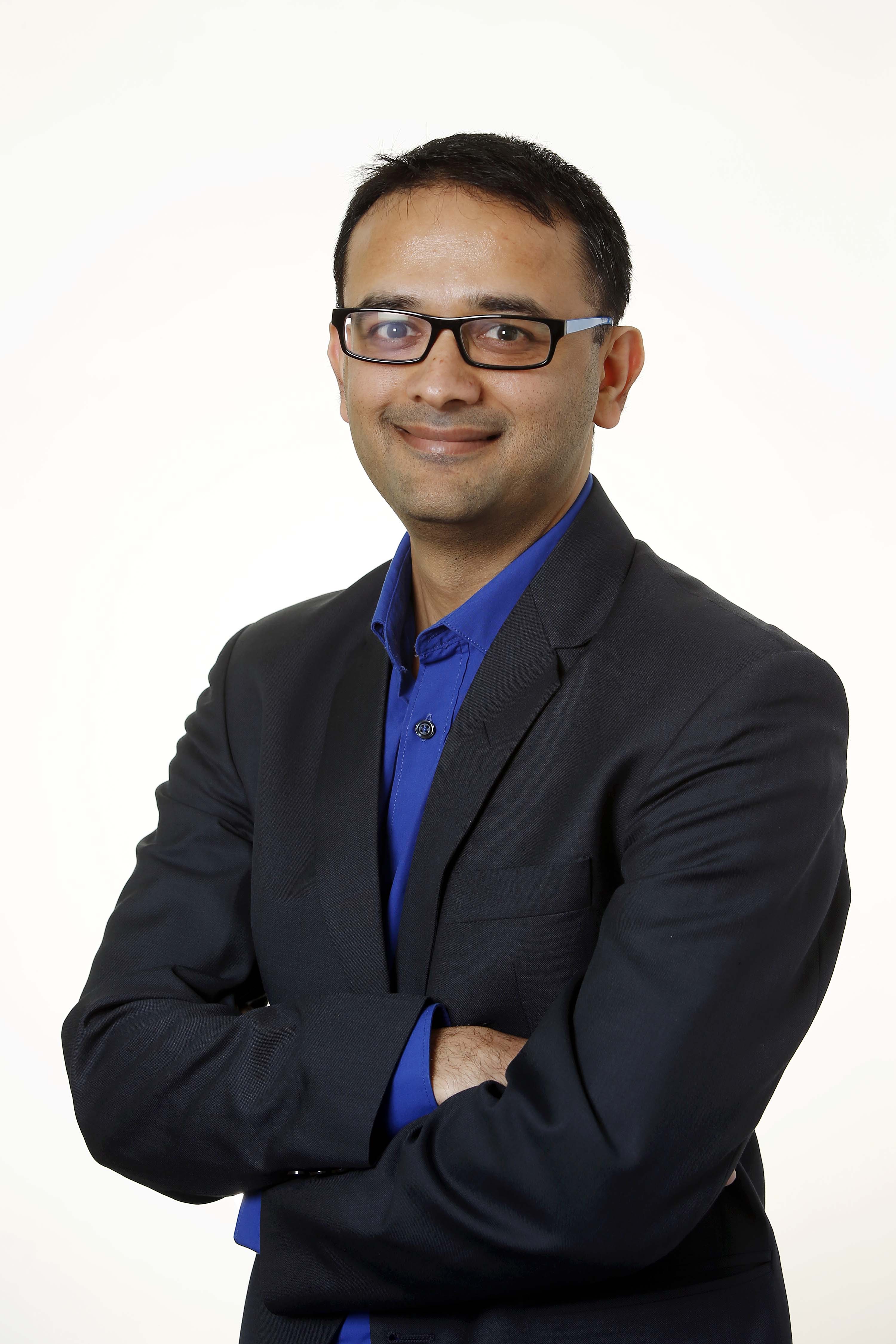Dr Vaibhav Gandhi
Director of Programmes - Product Design and Engineering

-
School Faculty of Science and Technology
-
Department Design Engineering & Mathematics
-
Location London
Research activities
Doctoral and Masters (Research) students are welcome in the areas of Brain-Computer Interface (BCI), physiological signal processing, neural network design, graphical user interfaces, assistive robotics and similar interdisciplinary research areas.
Vaibhav is interested into the practical implementation of EEG for assistive robotic applications such as wheelchair control while using use-centric graphical user interfaces.
Click this link to see the https://booksite.elsevier.com/9780128015438/video.php
List of PhD and Doctor of Professional Studies (DProf) student projects:
1) Nishant Singh - Neuron based control mechanisms for robot arm movement (2015-2020)
The proposed plan is to develop a neural controller for a humanoid robot platform following the Human Brain Project's methodology. The methodology taken in the course of research by HBP (Human Brain Project) is to describe the neural topology in PyNN, and run the topology through a neural simulator. This simulator could be software (e.g. Nest or Brian) or hardware (e.g. SpiNNaker or HICANN (neuromorphic chips)). Mapping through motor cortex, cerebellum and brain stem will be done and some central pattern generators will be put to use for the present work. Further, it is proposed to make use of NEAL (Neuromorphic Embodied Agents that Learn) to simulate a robot. The robot would perform simple tasks of arm and hand functions, such as grasping and moving objects. This will again be aligned to human brain data. In due course of work, larger motor areas are proposed to be aligned, to comprehend more sensitive task like grasping and holding delicate objects. The robot will process tactile information from touching an object, and its neural firing will be aligned with human somatosensory Event Related Potential data.
2) Vatsal Mehta - Developing Traffic Prediction and Congestion Algorithms for a Cooperative Intelligent Transport System (C-ITS) (2018 - 2024)
Smart cities have been developing swiftly over the past few years and Intelligent Transport will be is a key part of this brave new world. A Cooperative Intelligent Transport System (C-ITS) is a fusion of transport and communication facilities, which allows vehicles to communicate with each other and with the transport infrastructure. This project focuses on how traffic prediction can be incorporated and how congestion can be reduced by using C-ITS. Probability and mathematical modelling based on traffic flow, average speed etc. will be used to predict traffic and minimise traffic congestion.
3) Nitin Sharma - Detection and Remediation of Dysfluencies in Speech (2019 - 2025) (AcSIR/CSIO, India)
Speech is an effective way to express ideas, feelings, and thoughts by humans. However, speech is not always without disruptions. Disruptions in speech can lead to serious problems like stuttering. All people are dysfluent to some degree in speaking, but about 5% of children and 1% of adults are more dysfluent in their speech, which is perceived as stuttering to listeners. This project focuses on automatically detecting and classifying different speech dysfluencies in the speech with improved accuracy and providing remediation to the dysfluent speech signals.
4) Ola Siwoku - Intelligent Software Agents to Improve Selection of Regression Tests in Agile Software Development (2018 - )
Regression tests run when there are product enhancements or configuration changes. It’s a process that strengthens a Software tester's confidence that unexpected behavior is not inadvertently incorporated in newer software versions. This project focuses on automated regression test cases using Artificial Intelligence as a next step in the evolution of automated software testing.
Current Teaching
As Director of Programmes for Product Design and Engineering, Vaibhav has the responsibility for the design, development, assessment, management, and quality enhancement processes for the below programmes.
BEng Product Design Engineering (last cohort Sept./Oct. 2022)
BSc Honours Architectural Technology
BEng Mechatronics and Robotics (October 2022 onwards)
BEng Computer Systems Engineering
MSc Mechatronic Systems Engineering
MSc Telecommunications Engineering
MSc/PGDip/PGCert Building Information Modelling Management and Integrated Digital Delivery
MSc Automation and Digital Manufacturing
Vaibhav also contributes to teaching the following UG and PG modules within the Design Engineering department:
Control Systems (2013 - ) - Year 2/Level 5
Robotics & Mechatronics (2013-2019/20) - Year 2/Level 5
Design Engineering Major Project (2013 - ) - Year 3/Level 6
Electronics/Computer Systems Engineering Major Project (2021 - ) - Year 3/Level 6
Industrial Automation & Control (2013-2019/20) - Year 3/Level 6
Design Engineering Dissertation (2018-2019) - Year 3/Level 6
Team Project (2017 - 2021/22) - Year 4/Level 7 MEng
Robotic Systems and Control (2017 - 2020/21) - MSc Robotics
Group Project (2017 - 2020/21) - MSc Robotics
Thesis - MSc Robotics

